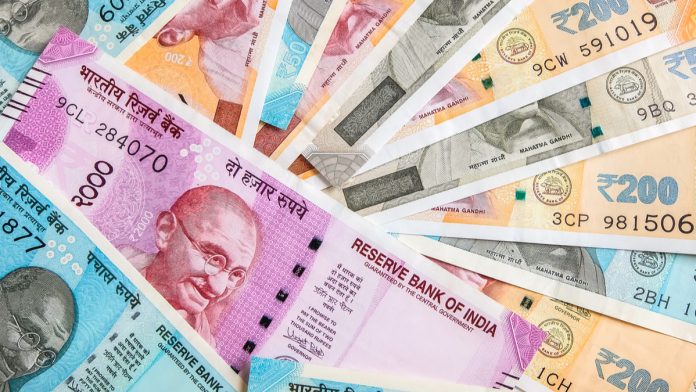GBP/INR has been trading sideways since yesterday evening. Currently, the one British pound buys 91.368 Indian rupees, down 0.01% as of 6:23 AM UTC. The pair has been rallying since March 19, and it still follows the uptrend. The price might target the range between 92.000 and 94.000, where it used to be for most of January and February.
GBP/INR: RBI Cuts Rates by 75 bps
Investors are now reflecting on the Reserve Bank of India’s (RBI) decision to cut the interest rates and to what degree this could help the economy. Initially, the rupee extended declines, but it quickly rebounded.
The RBI cut its benchmark repo rate by 75 basis points to 4.40% amid the coronavirus crisis. Besides this, the central bank will inject about $5 billion. The RBI’s monetary policy committee (MPC) organized the meeting through video conferencing.
At the beginning of the week, Prime Minister Narendra Modi required everyone to stay at home for three weeks, effectively shutting down the entire economy.
The central bank’s decision comes a day after the Indian government revealed its $22.6 billion stimulus plan to support people through direct money transfers and food security measures.
Prithviraj Srinivas, chief economist at Axis Capital in Mumbai, commented:
“The RBI has pulled out its bazooka. It has pulled down the cost of capital through deep policy rate cuts, it has increased the quantity of money through cash reserve ratio cuts and asset purchases, and more importantly reduced financial stress in the economy through its 3-month moratorium on all term loans as well as working capital.”
The central bank would have probably tried to cut the interest rate sooner than that, but it couldn’t do so because of the surging inflation way above its target. The Indian economy has been struggling due to domestic factors even before the COVID outbreak started.
Now with the coronavirus spreading rapidly, Moody’s Investors Service cut its India’s 2020 GDP growth forecast by more than half, to 2.5% from its previous estimate of 5.3%. The rating agency says in its Global Macro Outlook 2020-21 released today that the lockdown measures would lead to a dramatic loss in incomes.





